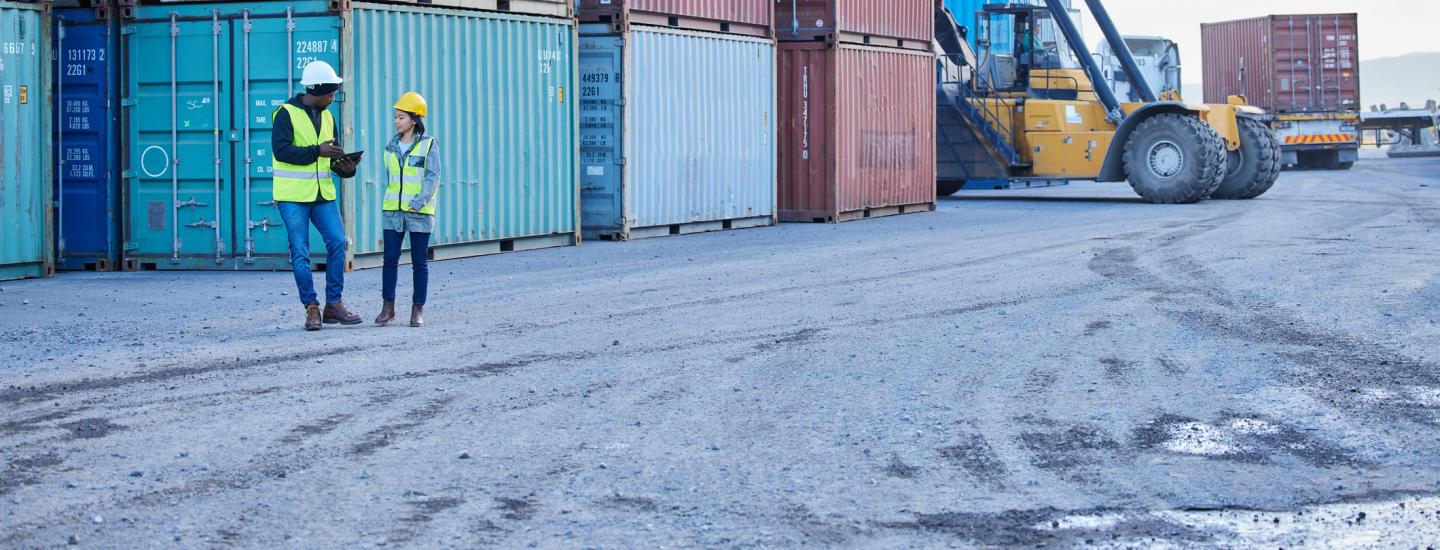Blog
Updates from the GHG Protocol Actions and Market Instruments Workstream
By developing a corporate GHG emissions inventory using GHG Protocol, companies identify the sources and magnitude of their GHG emissions which helps them manage risks, uncover o
Upcoming Scope 2 Public Consultation: Hourly Matching and Deliverability
This blog reflects recommendations advanced through the Scope 2 Technical Working Group and formally approved by the Independent Standards Board for public consultation via vote, resulting in proposed revisions to the 2015 Scope 2 Guidance. All proposals remain subject to public consultation.
Upcoming Scope 2 Public Consultation: Overview of Revisions
Summary
Following recommendations from the Scope 2 Technical Working Group and approval by the GHG Protocol Independent Standards Board to progress to public consultation, revisions to the Scope 2 Guidance (2015) will be shared through a 60-day public consultation period, starting in October. In the proposed revisions, the structure of the updated scope 2 reporting framework would remain the same, including a continuation of the dual reporting requirement for both the location-based and market-based methods. Changes to the location-based method (e.g., updated emission factor hierarchy, requirement to use the most precise emission factors accessible, a new definition of accessible data) and market-based method (e.g., hourly matching requirement, deliverability requirement, new emission factor requirements) prioritize improved accuracy, greater transparency, and provide more comparability inventory values for use by external disclosure frameworks and initiatives. The proposed revisions also introduce several measures to improve the implementation feasibility of the updates (e.g., load profiles for hourly matching, exemption thresholds to hourly matching for smaller organizations, a legacy clause for existing contracts, and a multiyear phased implementation). This is the first of several communications in a series leading up to and continuing through the Scope 2 public consultation. These updates will help explain what is being proposed and why, providing additional context for stakeholder engagement. Future blog posts will delve into hourly and deliverability requirements and provide guidance on how to participate in the upcoming consultation process.
Together We Go Further: Harmonising Carbon Accounting Standards
Written By Geraldine Matchett, Chair of the GHG Protocol Steering Committee
ISO-GHG Protocol Partnership: Frequently Asked Questions
On September 9, 2025 GHG Protocol and the International Organization for Standardization (ISO) announced a ground-breaking partnership, aimed at reducing fragmentation in the GHG accounting landscape. This new partnership drives forward an ambition of harmonization and co-development, resulting in a common global language for emissions measurement and reporting and thus simplifying the task at hand for companies, consultants, verifiers, auditors, conformity assessment bodies, and other third parties (e.g., trainers and software companies). It also aligns with growing calls for harmonization, including most recently by the B7 community, which is tasked with consolidating the interests of the business community and developing concrete and actionable recommendations to the G7 leadership.
Scope 2 Technical Working Group Progress Update
GHG Protocol is currently in the process of updating its corporate suite of standards and guidance, including its Scope 2 Guidance (2015). In the decade since the Scope 2 Guidance was published, there have been significant changes within the GHG emissions accounting and reporting ecosystem, including the development of both voluntary and mandatory disclosure frameworks and the increase in adoption of net-zero emissions targets.
Secondment Opportunities
Greenhouse Gas Protocol Standards Workstream
Greenhouse Gas Protocol is the world’s leading authority and international standard setter on corporate greenhouse gas (GHG) em
2024 Major Milestones for the GHG Protocol
Over the last year, Greenhouse Gas Protocol has reached a number of major milestones.
GHG Protocol Newsletter: October 2024
GHG Protocol Newsletter: October 2024
Updated Overview of GHG Protocol Integration in Regulatory Climate Disclosure Rules
November 4, 2024
Ensuring Transparency and Accountability in Standard Setting: GHG Protocol’s Strengthened Governance Model
As announced in November of 2023, GHG Protocol is refining its governance model to meet the needs of a rapidly changing GHG accounting and reporting landscape.
Overview of GHG Protocol Integration in Regulatory Climate Disclosure Rules
Updated November 4, 2024: After consultation with our ecosystem partners, GHG Protocol released an updated version of this resource.
GHG Protocol Releases Scope 3 Survey Draft Summary Report and Proposal Summary
Scope 3 Survey Draft Summary Report and Proposal Summary
Between November 2022 and March 2023, GHG Protocol invited interested
Technical Working Group Nominations Update
| Update: Please note GHG Protocol is accepting applications for Technical Working Groups until January 15, 2025. |
What Are Greenhouse Gas Accounting and Corporate Climate Disclosures? 6 Questions, Answered
The origin of greenhouse gas (GHG) accounting dates to the late 1990s, but interest has grown exponentially in the past few years with the proliferation of both voluntary and more recently, mandatory corporate climate disclosure initiatives.
Inventory and Project Accounting: A Comparative Review
In 1998, WRI and WBCSD formed a partnership to develop the Greenhouse Gas (GHG) Protocol Corporate Standard, published in 2001 and revised in 2004, and the GHG Protocol for Project Accounting (Project Protocol), published in 2005. These standards provide two methods to account for emissions, respectively: entity-level GHG inventory accounting, which describes how to quantify and allocate an organization’s share of emissions to the atmosphere, and project-based GHG accounting, which describes how to evaluate emissions effects of a project relative to a counterfactual baseline scenario without the project.
Land Sector and Removals Guidance: Topline Themes from Stakeholder Feedback
GHG Protocol’s Land Sector and Removals Guidance builds on the Corporate Standard and Scope 3 Standard, explaining how companies should account for and report GHG emissions and removals from agricultural and forest management practices, land use change, bioenergy, carbon dioxide removal technologies, and related activities in GHG inventories.
Aligning Corporate Targets, Accounting and Disclosures on Land Use Change Emissions and Deforestation-free Supply Chains
The Accountability Framework Initiative (AFI), in partnership with Greenhouse Gas Protocol and the Science Based Targets initiative (SBTi), recently released new guidance on how companies can align key land sector targets, accounting and disclosures.




















